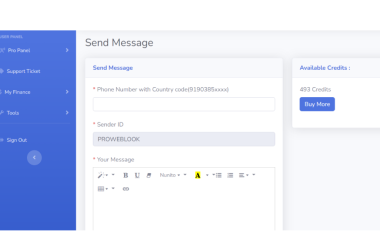Introduction: Unveiling the Power of MIME Type validator
Introduction: Unveiling the Power of MIME Type validator.
In the intricate web of digital data exchange, types play a crucial role in determining how information is processed and interpreted by software applications and systems. Each possesses a MIME (Multipurpose Internet Mail Extensions) type, which defines its nature and format. Understanding MIME types is crucial for seamless data handling and security. The MIME Type validator is a versatile tool for identifying and verifying MIME types, ensuring compatibility and integrity. This guide explores its functionalities and practical applications.
Understanding MIME Types: The Foundation of Digital Data.
Before exploring the MIME Type validator, it’s crucial to understand the fundamentals of MIME types. Defined by the IETF, MIME types identify different data types transmitted online. Each MIME type consists of a primary type and subtype, separated by a forward slash (/). For example, the MIME type for a JPEG image is “image/jpeg,” while the MIME type for a PDF document is “application/pdf.”
MIME types play a pivotal role in:
1. MIME Negotiation: When a client requests a resource from a server, MIME types aid in negotiating the appropriate MIME format based on the client’s preferences and the server’s capabilities.
2. Data Validation: By identifying the MIME type of a , applications can perform validation checks to ensure compatibility, security, and adherence to predefined standards.
3. Security Enforcement: MIME types play a crucial role in security protocols, helping prevent malicious MIME execution by restricting the execution of certain types based on their MIME identifiers.
4. Handling: Software applications use MIME types to determine how to process and render s, ensuring seamless interoperability across different platforms and environments. Proweblook
Introducing MIME Type validator: A Versatile Tool for Digital Data Validation.
In the dynamic landscape of digital data exchange, ensuring the integrity and compatibility of s is paramount. Here, the MIME Type checker proves invaluable, providing diverse functionalities to validate, identify, and verify MIME types. Key features of MIME Type checker include:
1. MIME Type Identification: The MIME Type validator employs algorithms to analyze and accurately identify file MIME types. By examining signatures, metadata, and structural characteristics, the tool can determine the appropriate MIME type with precision.
2. Batch Processing: For efficiency and scalability, MIME Type validator supports batch processing, allowing users to validate multiple s simultaneously. This feature is particularly useful in scenarios where large volumes of s need to be processed and categorized.
3. Customizable Rulesets: Users can define customizable rulesets and policies to enforce specific MIME type validation criteria. This empowers organizations to tailor the validation process to their unique requirements, ensuring compliance with industry standards and security protocols.
4. Integration Capabilities: MIME Type validator can be seamlessly integrated into existing software systems and workflows through APIs (Application Programming Interfaces) and SDKs (Software Development Kits). This enables automated MIME type validation within enterprise applications, MIME management systems, and data processing pipelines.
5. Reporting and Logging: The tool provides comprehensive reporting and logging capabilities, enabling users to track and audit MIME type validation activities. Detailed logs capture information such as names, MIME types, validation results, and timestamps, facilitating compliance monitoring and forensic analysis. Proweblook
Significance and Practical Applications of MIME Type validator.
The significance of MIME Type checker extends across various domains and industries, with practical applications including:
1. Web Development and Hosting: Web developers and hosting providers leverage MIME Type validator to ensure the integrity and security of s uploaded to websites and servers. By validating MIME types, they can prevent potential security vulnerabilities such as injection attacks and MIME spoofing.
2. MIME Management Systems (CMS): CMS platforms utilize MIME Type validator to enforce MIME validation policies and ensure that only authorized types are accepted for upload. This helps maintain data integrity, protect against malware infiltration, and streamline MIME management workflows.
3. Digital Forensics and Incident Response: In forensic investigations and incident response scenarios, MIME Type validator plays a crucial role in analyzing and categorizing digital evidence. By validating MIME types, forensic analysts can identify suspicious s, classify them based on their nature and origin, and extract actionable insights for further investigation.
4. Email Security and Filtering: Email security solutions integrate MIME Type validator to scan attachments and verify their MIME types before delivering messages to recipients. This helps prevent the dissemination of malicious s, such as malware-laden attachments or phishing scams, safeguarding organizations against cyber threats.
5. Data Processing and Automation: MIME Type validator facilitates automated data processing and validation tasks in data pipelines and workflow automation systems. By validating MIME types at various stages of data processing, organizations can ensure data quality, consistency, and compliance with regulatory requirements. Proweblook
Challenges and Considerations in MIME Type Validation.
While MIME Type checker offers robust capabilities for validation and identification, several challenges and considerations merit attention:
1. Format Complexity: The proliferation of diverse formats and variations poses challenges for accurate MIME type identification. Complex structures, proprietary formats, and emerging types may require specialized handling and heuristics.
2. Security Risks: Malicious actors may attempt to manipulate headers or disguise malicious MIME to evade MIME type validation. MIME Type validators must incorporate robust security measures to detect and mitigate such threats effectively.
3. Performance and Scalability: Processing large volumes of s within tight time constraints requires MIME Type validator to be highly efficient and scalable. Optimization techniques such as parallel processing and caching can enhance performance and responsiveness.
4. Regulatory Compliance: Organizations operating in regulated industries must ensure that MIME Type validator complies with relevant data privacy and security regulations. This includes safeguarding sensitive information, maintaining audit trails, and implementing access controls.
Conclusion.
In the realm of digital data exchange and security, the MIME Type checker is indispensable. It accurately validates, identifies, and verifies file MIME types, promoting interoperability and enhancing data integrity. With applications across industries like web development, hosting, and email security, it plays a crucial role in safeguarding assets and maintaining stakeholder trust in a rapidly evolving digital world.
Kindly check our website Proweblook for more Web API tools. More resources can be found on our Github page, Social Channels are Twitter, Facebook & Youtube.








